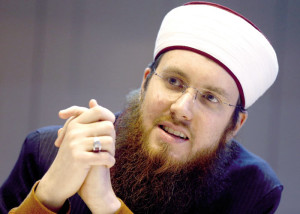French satirical magazine Charlie Hebdo asks this anguished question in an eponymous editorial: “How did we end up here?” It is a reference to the sense of helpless outrage felt by Europe over terrorist attacks on its great cities by its own nationals.
The helplessness is not caused by the frustrations of fighting terrorism but by the perpetrators’ identity. They are second-generation immigrant Muslim youths of North African ethnicity. They are European except by affiliation. As Charlie Hebdo points out, Europe is unable to decide which of the following is most to blame for the state of affairs and thereby, the Brussels attacks: “An incompetent police force? Unbridled multiculturalism? Youth unemployment? Uninhibited Islamism?”
These are important questions. Two disconnected but intersecting events may be relevant in the search for an answer.
First, the outrage over Air France’s announcement that its female flight attendants must wear headscarves on renewed service between Paris and Tehran. French unions accused the airline of launching “an attack on women” and Air France was forced to compromise. Female crew could opt out of flying the route to Tehran, the airline said.
The great howl of protest over the headscarf was instructive. It indicated increasing paranoia over any perceived Western surrender to orthodox “Muslim” values. And it showed the extent to which reason has abdicated to hysteria. Air France had simply restored a pragmatic business requirement that had been in place on its flights to Iran before the service was suspended in 2008. In business, as in electoral politics, idealism must often lose to grubby pragmatism.
The second event occurred in Switzerland. A school near Basel exempted two Muslim boys from shaking their female teacher’s hand, a twice-a-day custom in schoolrooms across the country.
The teenage pupils argued that shaking hands with a woman went against the teachings of their faith. The Swiss Justice minister said her country “cannot accept this in the name of religious freedom. The handshake is part of our culture”. The Swiss Teacher’s Union agreed with her. The school in question said it was a “temporary and pragmatic” decision.
This is pragmatism of the sort that kills the dream. A member of the anti-immigration Swiss People’s Party darkly asked: “Today’s it’s the handshake, what will it be tomorrow?”
It is a legitimate question and it feeds back into the one posed by Charlie Hebdo: “How did we end up here?”
It is plain that Europe is in a terrible bind about its settled Muslim population, which is mostly immigrants who arrived on the continent well after World War II. European rationalism (and laws) allows for non-discriminatory multiculturalism. There is an unsaid expectation that Muslims will return the compliment and fold themselves into Europe. In other words, that Muslims in Europe will become European Muslims and will take on at least some of the pragmatic ways of the countries in which they live.
The overly chaste teenagers in Switzerland obviously did not. Should the school have backed down citing pragmatism? Not in the opinion of Montassar Ben Mrad, president of the Federation of Islamic Organisations in Switzerland. “Can the denial of shaking hands be more important than the Islamic commandment of mutual respect?” he asked, addressing the question to Muslim students and parents.
Unfortunately, yet another group, the Islamic Central Council of Switzerland, responded with careless unconcern. “One would think that the continued existence of Switzerland’s core values was at stake,” it said, metaphorically blowing a raspberry at Swiss concerns about integrating its 5% Muslims.
This is imprudent and bound to provoke reactionary measures that will lead to Muslim resentment. In 2009, Swiss voters banned construction of minarets. Last year, one canton made it possible to punish the wearing of a burqa in public with a $10,000 fine.
With Syrians continuing to seek sanctuary in the West, it is unwise for Muslims already settled in Europe to show themselves to be a perfidious lot. ’Twas well said that you better think about the future for it is where you will spend the rest of your life.


